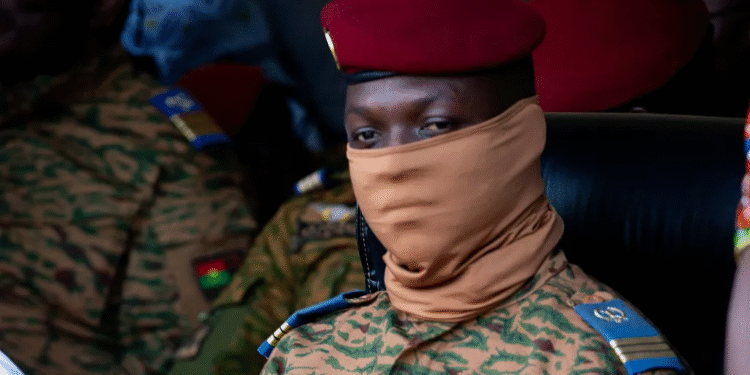A week after an attempted coup in Burkina Faso, tensions remain high in the capital, Ouagadougou, particularly within the armed forces.
Local media report that a meeting scheduled for April 22 at the army’s general staff headquarters, intended to gather several military officers, was first postponed and eventually canceled after the invited officers failed to attend.

According to Radio France Internationale (RFI), large crowds—including military personnel and families of missing civilians—were seen gathering at the Mogho Naaba palace, a key traditional authority in the country, underscoring the growing unease.
Meanwhile, a cabinet meeting took place under heavy security at the presidential palace on April 24. Sniffer dogs and helicopters patrolled the area, while military camps across the capital, including the General Baba Sy camp in the south, were placed under tight supervision with armored vehicles positioned at entrances.
In an apparent show of strength, the government of Captain Ibrahim Traoré has called for massive demonstrations on April 30 to rally public support for the regime. Organizers say the protests aim to denounce “Western interference,” following recent allegations by U.S. General Michael Langley that Burkina Faso’s gold reserves were being diverted to bolster its security forces.
The military government announced on April 22 that it had thwarted a “major plot” to overthrow Captain Traoré. Authorities said they uncovered the conspiracy after intercepting communications between a senior Burkinabé military officer and terrorist leaders. Security Minister Mahamadou Sana, speaking on state television, claimed that both active and former soldiers, along with militants, were involved. Among those implicated is Captain René David Ouédraogo, who is currently at large.
According to Sana, the plotters intended to storm the presidential palace on April 16 and “sow total chaos,” ultimately placing Burkina Faso under the control of an international body.
Burkina Faso, like its neighbors Niger and Mali, has spent over a decade battling an insurgency waged by extremist groups linked to al-Qaida and the Islamic State. Following military coups in all three nations, the juntas have expelled French forces and sought security partnerships with Russian mercenary groups. Together, the countries have formed the Alliance of Sahel States to bolster regional defense cooperation.
Despite these efforts, analysts warn that security across the Sahel region has deteriorated, with attacks and civilian casualties rising sharply under military rule.









